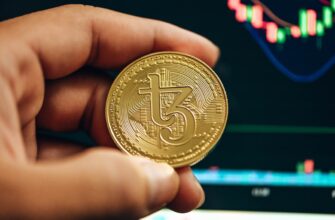- Understanding Cryptocurrency Regulation in Indonesia
- OJK’s Role in Indonesia’s Financial Ecosystem
- Legal Status of Cryptocurrency Under OJK Guidelines
- How OJK Protects Crypto Investors
- Compliance Requirements for Crypto Businesses
- Future of Crypto Regulation Under OJK
- Tips for Safe Crypto Engagement in Indonesia
- Frequently Asked Questions (FAQ)
- Is cryptocurrency legal in Indonesia?
- Can banks handle cryptocurrency transactions?
- What happens if I use crypto for payments?
- How does OJK protect against crypto scams?
- Will OJK regulate crypto exchanges directly?
- Are crypto profits taxable?
- Navigating Indonesia’s Crypto Future
Understanding Cryptocurrency Regulation in Indonesia
As cryptocurrency gains traction in Indonesia, the role of Otoritas Jasa Keuangan (OJK) – Indonesia’s Financial Services Authority – becomes increasingly crucial. While crypto assets aren’t recognized as legal tender, OJK oversees financial institutions interacting with this emerging asset class. This article explores OJK’s regulatory stance, compliance requirements, and what it means for investors navigating Indonesia’s dynamic crypto landscape.
OJK’s Role in Indonesia’s Financial Ecosystem
Established in 2011, OJK regulates and supervises Indonesia’s financial services sector, including:
- Banking institutions and non-bank financial companies
- Capital markets and stock exchanges
- Fintech innovation and digital assets oversight
- Consumer protection and financial education initiatives
Though Bappebti (Commodity Futures Trading Regulatory Agency) directly supervises crypto trading platforms, OJK monitors traditional financial institutions’ exposure to cryptocurrency risks.
Legal Status of Cryptocurrency Under OJK Guidelines
OJK maintains a cautious approach toward crypto assets:
- Not legal tender: Crypto cannot be used for payment transactions in Indonesia
- Commodity classification: Regulated as tradable assets under Bappebti’s supervision
- Banking restrictions: Financial institutions cannot process crypto payments or act as exchanges
- Risk warnings: Regular public advisories about crypto volatility and scams
How OJK Protects Crypto Investors
Despite not directly regulating exchanges, OJK safeguards investors through:
- Financial institution oversight: Ensuring banks implement strict KYC/AML checks for crypto-related transactions
- Market conduct rules: Prohibiting misleading crypto investment promotions by licensed entities
- Consumer education: Publishing guides on crypto risks and red flags
- Fintech sandbox supervision: Monitoring blockchain innovations for systemic risks
Compliance Requirements for Crypto Businesses
Entities operating in Indonesia’s crypto space must navigate dual oversight:
- Bappebti registration: Mandatory exchange licensing and regular reporting
- OJK alignment: Financial partners must comply with anti-money laundering rules
- Tax compliance: Adherence to crypto capital gains and VAT regulations
- Data localization: User data must be stored within Indonesia
Future of Crypto Regulation Under OJK
OJK’s evolving approach includes:
- Exploring Central Bank Digital Currency (CBDC) development
- Drafting unified regulations with Bappebti and Bank Indonesia
- Enhancing cross-border transaction monitoring
- Developing risk-based frameworks for DeFi and NFTs
Tips for Safe Crypto Engagement in Indonesia
Follow these OJK-aligned practices:
- Verify exchange registration status on Bappebti’s website
- Diversify investments and avoid “guaranteed return” schemes
- Use licensed wallets with two-factor authentication
- Report suspicious platforms to OJK’s whistleblowing system
- Declare crypto holdings for tax purposes
Frequently Asked Questions (FAQ)
Is cryptocurrency legal in Indonesia?
Yes, but with restrictions. Crypto is legal as a commodity investment under Bappebti’s supervision, but prohibited as payment currency per OJK regulations.
Can banks handle cryptocurrency transactions?
Indonesian banks cannot process direct crypto payments under OJK rules but may facilitate fiat transfers to/from registered exchanges with enhanced due diligence.
What happens if I use crypto for payments?
Using crypto for transactions violates OJK regulations. Offenders face account freezes, fines up to 2 billion IDR, and potential criminal charges under anti-money laundering laws.
How does OJK protect against crypto scams?
OJK issues investor alerts about unlicensed platforms, collaborates with police on fraud investigations, and mandates risk disclosures by financial institutions.
Will OJK regulate crypto exchanges directly?
Currently, Bappebti remains the primary exchange regulator. However, OJK may assume broader authority under proposed financial sector reform legislation.
Are crypto profits taxable?
Yes. Crypto capital gains are subject to 0.1% income tax and 0.11% VAT on transactions, as clarified in Finance Ministry Regulation No. 68/PMK.03/2022.
Navigating Indonesia’s Crypto Future
OJK’s measured approach to cryptocurrency reflects Indonesia’s balance between innovation and financial stability. As regulatory frameworks evolve, investors should prioritize compliance with both OJK guidelines and Bappebti requirements. By understanding these regulations, you can participate in Indonesia’s crypto market while mitigating legal and financial risks. Always consult OJK’s official channels for the latest regulatory updates.








